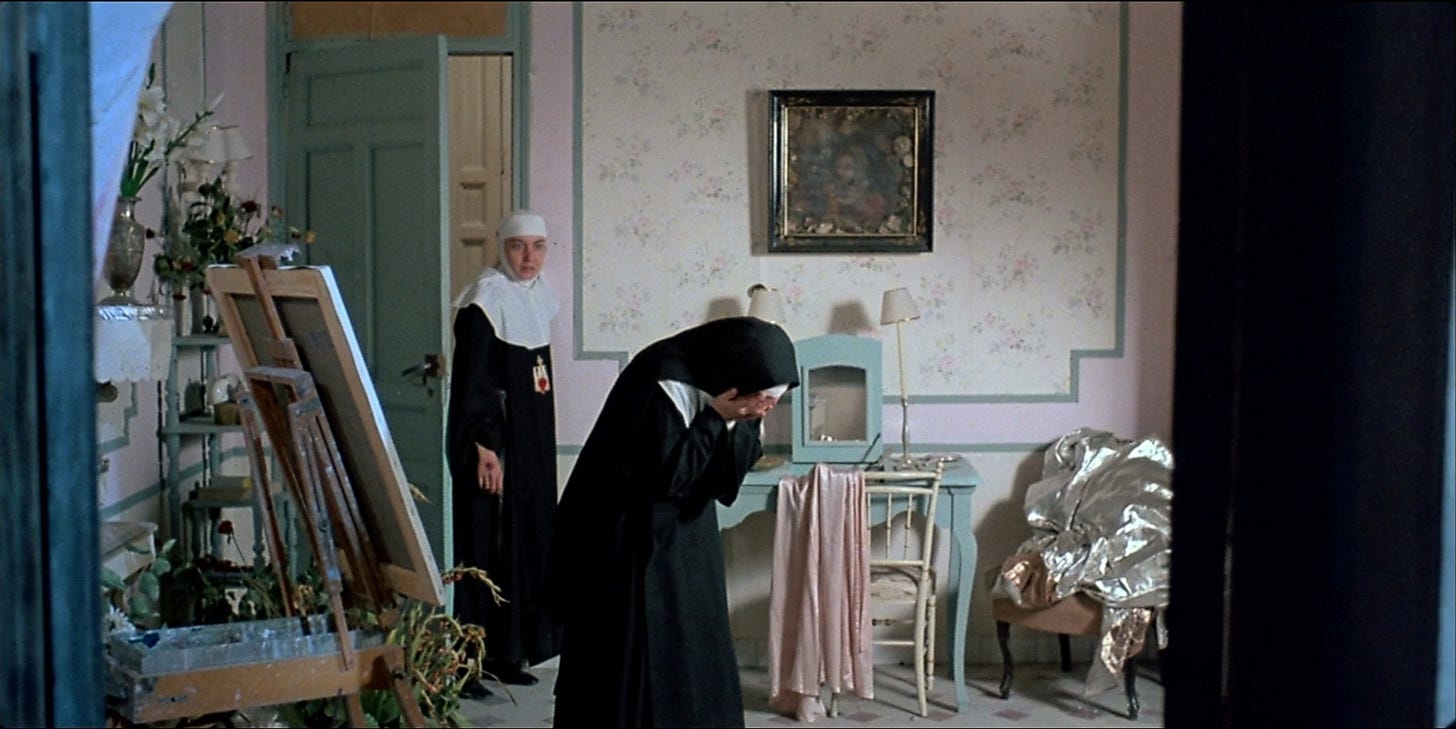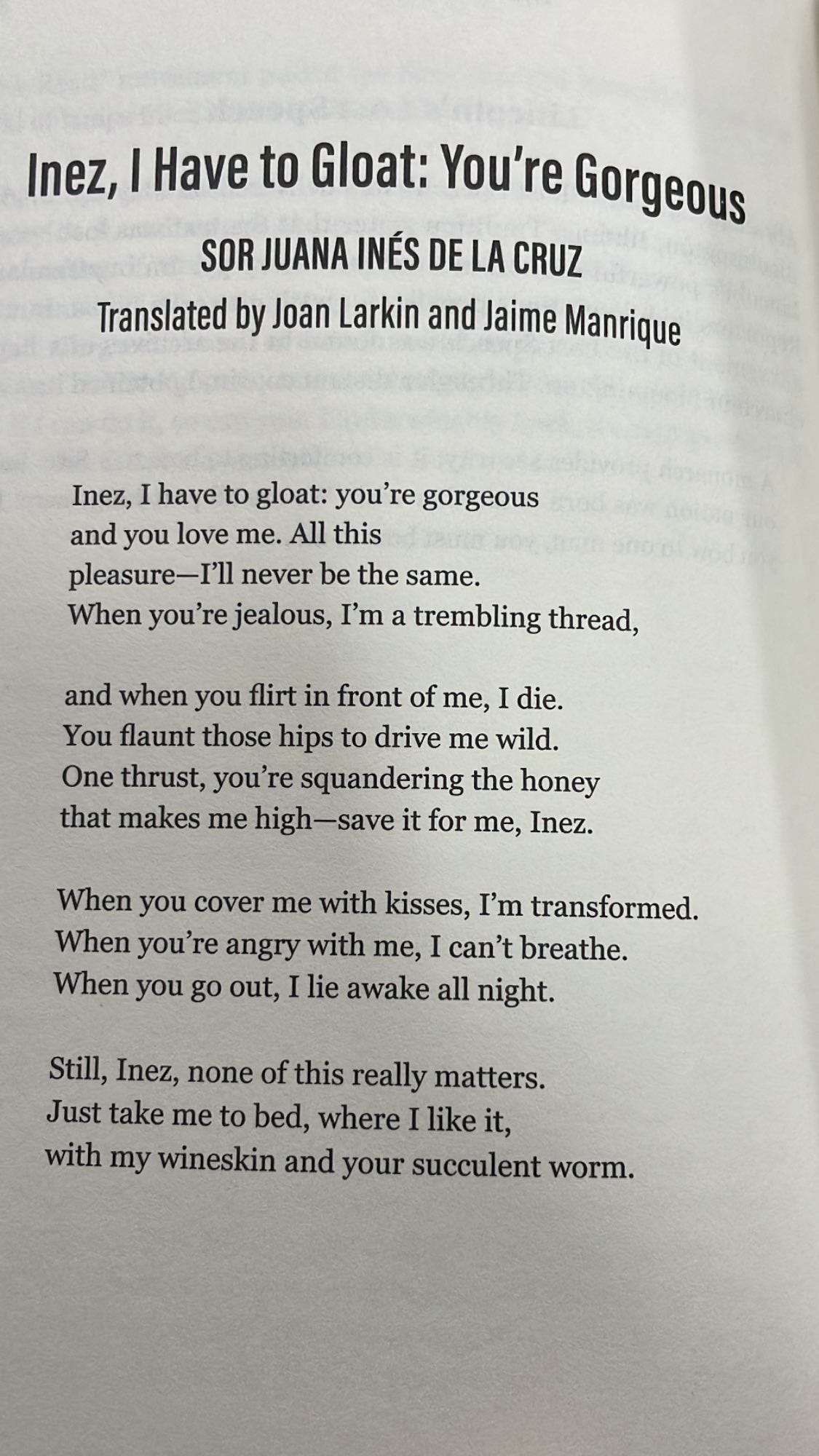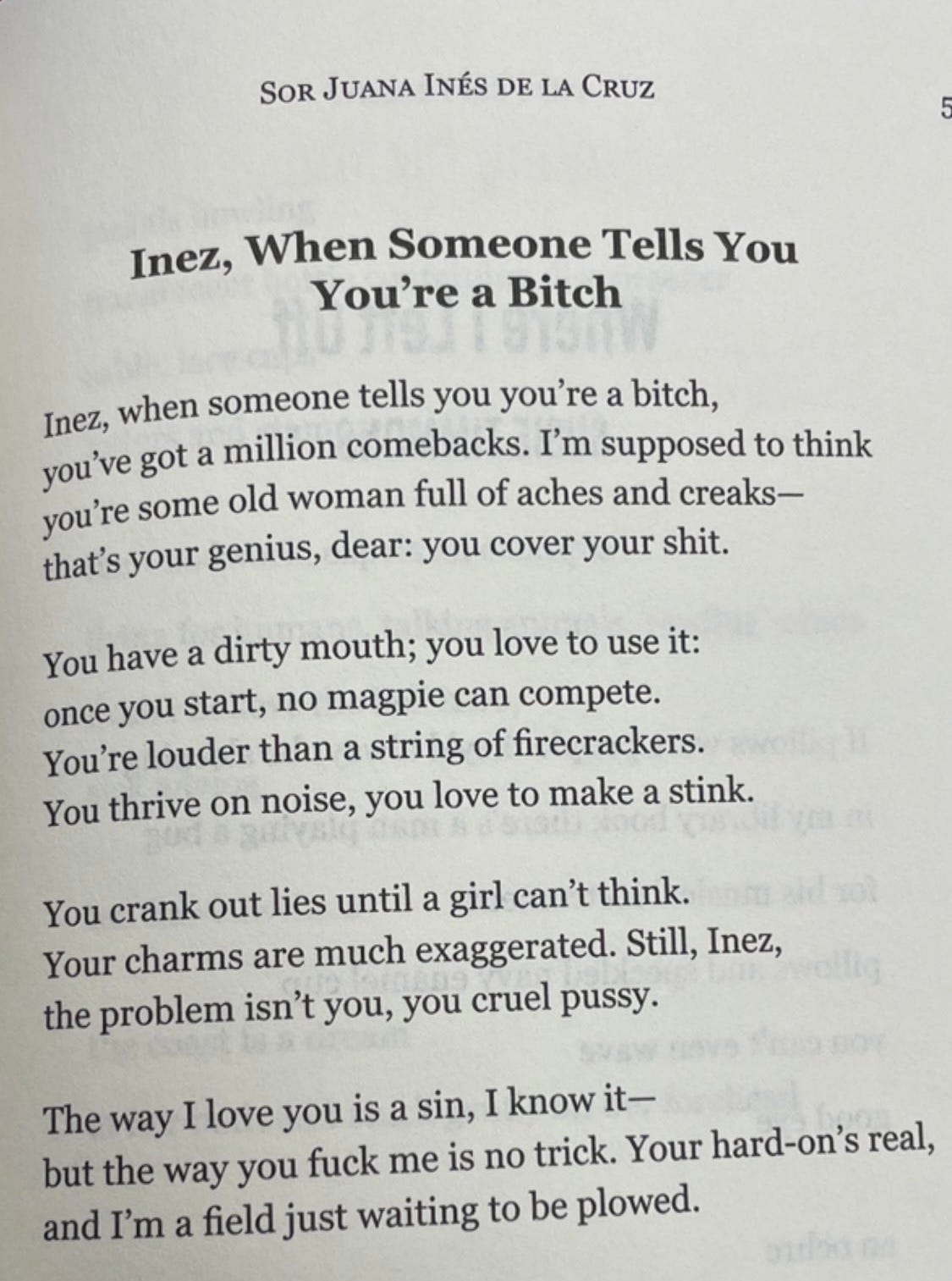This weekly newsletter is free with some content exclusive for paid subscribers. I thank those of you who have donated paid subscriptions and shared kind words about my writing, your support is deeply felt. If you find value in what I write and the topics I am exploring, please consider financially supporting my writing practice with a subscription of $7 a month. If you find value in what I write but cannot financially support my practice, please feel free to share it with others.
Friends, we are officially in Pisces season. My dear sister sign, ruler of my 9th house. It’s no surprise that I am once again thrown into fantasies of a life both secluded and deeply curated to my needs around quiet, social respite, and deep learning. If you’re Arnell (hi bestie) you’ve heard my cyclical desire to say fuck-all and move my books into a convent and live out my days dedicated to a deep spiritual practice with other women. Praying, reading, and doing various chores and tasks. I am, of course, very much romanticizing here. But my relationship to God & the church has never been straightforward, at least in my mind. Even as I was in church every Sunday, singing in the choir, I was mostly there for the art and poetry of it all, that’s what moved me. (And admittedly, the other teens I got to spend time with.)
These days when I am allured by a life of modesty and devotion it’s usually a signal that I am feeling full of an unmoored desire for some person, situation, or change of events, and/or I am in need of being so close to my studies and creative practices that I cannot be disturbed and only encouraged to go further and deeper. These desires are perhaps all connected and the former often kickstarts the latter. In any case, this feeling is not new to me. I remember looking through the archive of my Tumblr recently and seeing posts from as far back as 2012 where I am threatening (who, exactly?) to go into complete silence, to no longer speak a word to anyone, and to be only with myself.
Of course, I would not be just with myself but also with other women as dedicated as I am. I think not of priests and popes in this situation. Only a safe place for women to be intellectually and spiritually engaged with deep discipline. Earlier this week I posted two poems by Sor Juana Ines de la Cruz on Instagram. She was a Mexican poet, scholar, and Hieronymite nun, who wrote feminist (and lesbian!) poetry and was revered by the public for her intellectual skills and pursuits. She had one of the largest libraries in the new world and had close relationships with government officials and was often invited to speak with the great minds of the time. Her writing was surprisingly accepted until a Bishop published one of her works of critique and condemned her to which she responded in kind. This incident down spiraled and led to the burning of her 4,000-book library. I am paraphrasing the events here — but you see and are no doubt familiar with the damage that one man’s hurt feelings might cause.
In the 17th century, she was greatly ahead of her time. The translations of two of her poems below feel very contemporary in language, but language changes over time thus how things are translated varies. Their cheekiness is fun to me all the same. Both poems are published in Pathetic Literature, an anthology edited by Eileen Myles.
Last night I finished César Aira’s How I Became a Nun, which I started back in August while I was quarantining in Riley’s apartment in Dallas, alone. It’s a brief and curious book about a small child name César, who sometimes refers to herself as a girl, but is exclusively referenced by others as a boy child — though I’m told in the original Spanish-language version it fluctuates a lot more. The book begins just after 6-year-old César moves to Rosario, Argentina with his parents where she is poisoned by cyanide-contaminated strawberry ice cream which leads to events beyond her control. She details her hallucinogenic time in the hospital recovering from the contamination, her visits with her father who is in jail for killing the man who sold them the ice cream, and most notably, César’s time spent mostly alone, in her mind.
I’m going to spoil the fact César does not in fact become a nun at the end of the book. However, I find that her vast amounts of time spent alone, listening and learning from the radio, practicing being a teacher to many children in her head, and playing with large stretches of imagination and memory (which he prides himself on) are perhaps what makes her most nun-like. She was deeply devoted to herself, her intellect, and her inner world, perhaps as a result of her trauma and maybe even (as the writing often suggests) in spite of it.
I didn’t mind the simplicity of my life. A certain peace had come over me. I was discovering that time, long-term time made of days, weeks and months, and not of horrific moments as before was operating in my favor. Nothing else was, but that didn’t worry me. Time was enough. I clung on to time, and consequently to learning, the only human acitivity that makes time our ally.
How I Became a Nun, page 80
…LEARNING, THE ONLY HUMAN ACTIVITY THAT MAKES TIME OUR ALLY (!!!)
This is it! :-) :-) :-) Here’s what I’m after in this Pisces season, in this life! — Exercising time to benefit my learning. Devotion to learning self, skill, body & mind. (& at the risk of everything I write forever being a bending towards my conversation with Riley — I am reminded again of this quote by Tennessee Williams (first quoting William Saroyan): “ "In the time of your life--live!" That time is short and it doesn't return again. It is slipping away while I write this and while you read it, and the monosyllable of the clock is Loss, Loss, Loss unless you devote your heart to its opposition.” )!<3
Time is a gain, an exercise— unless we waste it concerned with things that do not concern or excite us, which is quite the loss. May my time be committed to learning, to the devotion of self and skill, and to solitude when needed.
🌀
Let’s briefly circle back to nuns & lesbianism, which I can’t ignore. I do find something inherently erotic about this chosen life, and it’s an unsurprising fact that most of the women I’ve been with romantically or in deep friendship with are women who are devoted to craft/skill/practice & moving closer to the self. Meeting people who are deeply connected to their practices makes my heart light up. It’s deeply inspiring and sustaining and makes for excellent parallel play.
I watched Pedro Almodóvar’s Dark Habits this week for the first time and through the dark comedy and drug addiction there is an evident erotic nature in the relationship between The Mother Superior and Yolanda, the cabaret singer the convent takes in as she hides from the police. The two need each other for different reasons — Yolanda to escape being questioned for her boyfriend's murder and The Mother Superior to project her love and adoration onto someone and hopefully get money for the convent by taking a new girl off the street. This scene where they duet Lucho Gatica’s song “Encadenados” reads as a foreshadowing of how Yolanda will leave The Mother Superior in the end.
Part of the lyrics reading (roughly): Love like ours is a punishment / that is carried in the soul until death. / My luck is in need of your luck / and you need me much more. / that’s why there will never be goodbye/ nor will any peace comfort us.
Truly, what lesbian do you know isn’t fatally devoted?
I’ll leave you with two poems -- one about nuns, by Nikky Finney, a black lesbian poet whose work teaches me something new every time I visit it & one more by Sor Juana Ines de la Cruz, bless her soul. Hotbed 36 by Nikky Finney Two nuns in full catholic regalia are boarding my flight to Minneapolis. Habits are snug and in place as well as two gold wedding bands. Identical. As though made by the same ring maker and sourced from the same mountain gold vein. The one in the wheelchair is wearing an Afro with soft edges of salt and pepper. The straight blonde-gray hair of the one pushing the wheelchair peeks out from the side of her black-and-white cotton crown. The blonde-gray sister is leaning in to take tender care of the other. This is not a younger- older-mother-daughter-Jesus-Keep-Me-Near-the-Cross thing going on. This is love baby. Agape erotic. Their love for each other is so public and so draped in the Catholic church. The standing lover brings food to the sitting lover, plucks and brushes the lint off her starched white collar. The sitting lover touches the side of her standing lover’s face to say thank you. The standing lover bends forward in the shape of a swan whenever the sitting lover speaks, to not miss one drop of the water that her words make, that she knows she will need to sail out in the middle of the lake of her life. I see them. They are Rilke’s: Love consists in this, that two souls protect and touch and greet each other.
Love opened a mortal wound
by Sor Juana Ines de la Cruz
Love opened a mortal wound.
In agony, I worked the blade
to make it deeper. Please,
I begged, let death come quick.
Wild, distracted, sick,
I counted, counted
all the ways love hurt me.
One life, I thought—a thousand deaths.
Blow after blow, my heart
couldn't survive this beating.
Then—how can I explain it?
I came to my senses. I said,
Why do I suffer? What lover
ever had so much pleasure?







Maghan, thank you for this! The threads you weave between devotion and intimacy, spirit, and community get my juices flowing. Im relating to your desires and I’m curious how “convent life” could be embodied within and with others any where ?